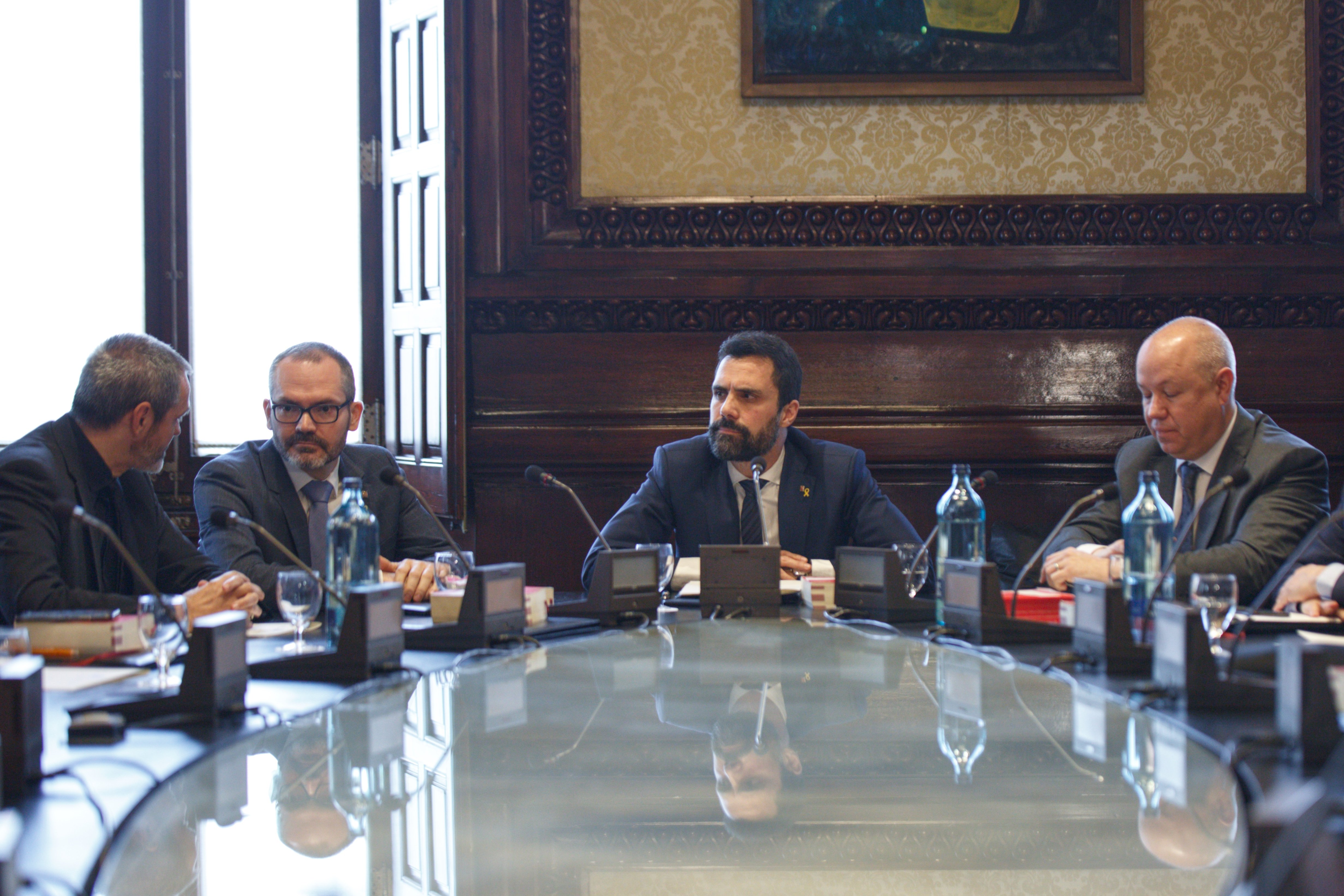The Catalan Parliament's procedural committee, the Bureau, has rejected a request from the Together for Catalonia (JxCat) party this Monday to halt the process of removing president Quim Torra's status as an MP, and accordingly has accepted that Torra is no longer a member of the Catalan chamber, with the votes in favour of the pro-independence Catalan Republican Left (ERC), along with the opposition unionist parties on the Bureau, the Catalan Socialists (PSC) and Ciudadanos (Cs). JxCat was thus left on its own in defending the proposal. The ERC party, however, says it will seek consensus with its Catalan government partner JxCat until the last minute to back the president and also ensure the government majority in the parliamentary votes of the afternoon.
The decision came after the Parliament's general secretary, Xavier Muró, ordered that president Quim Torra's status as a member of parliament should be removed. The three pro-independence parties - JxCat and ERC, along with the CUP - held several meetings this morning to try and agree on a response, but ended without consensus, which further aggravated the differences between the two Catalan government partners.
JxCat believes that it is not the place of the parliamentary legal advisors - of whom the general secretary is one - to make this decision, and the party put all the pressure on parliamentary speaker Roger Torrent, urging him to maintain Torra's status as a member of parliament with the right to vote. JxCat sources say that the question is whether Parliament is "in the hands of the advisors or of the people" and argue that "the final decision is up to Parliament and its maximum representative, who is the president".
For its part, ERC warns that engaging in "pointless disobedience" is "playing the state's game" and says that refusing to accept the electoral body's decision and allowing president Torra to vote would put Parliament at risk and "paralyze" the legislature. The party says it will work to restore Torra's seat and to guarantee the validity of parliamentary votes, but insists on the need to act "intelligently" and put aside actions with "short-term symbolic value".

